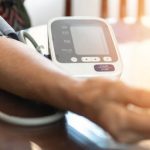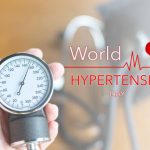The ONE organ responsible for high blood pressure.
Hypertension: The Silent Killer

What is blood pressure?
When the heart pumps blood through the arteries, the blood puts pressure on the artery walls. This is known as blood pressure.
Blood pressure is the pressure of blood pushing against the walls of your arteries. Arteries carry blood from your heart to other parts of your body.
Your blood pressure normally rises and falls throughout the day.
What do blood pressure numbers mean?
Blood pressure is measured using two numbers:
The first number, called systolic blood pressure, measures the pressure in your arteries when your heart beats.
The second number, called diastolic blood pressure, measures the pressure in your arteries when your heart rests between beats.
If the measurement reads 120 systolic and 80 diastolic, you would say, “120 over 80,” or write, “120/80 mmHg.”
What is high blood pressure (hypertension)?
High blood pressure, also called hypertension, is blood pressure that is higher than normal. Your blood pressure changes throughout the day based on your activities. Having blood pressure measures consistently above normal may result in a diagnosis of high blood pressure (or hypertension).
The higher your blood pressure levels, the more risk you have for other health problems, such as heart disease, heart attack, and stroke.
What is the main cause of hypertension?
High blood pressure usually develops over time. It can happen because of unhealthy lifestyle choices, such as not getting enough regular physical activity. Certain health conditions, such as diabetes and obesity, can also increase the risk of developing high blood pressure
How do I know if I have high blood pressure?
There’s only one way to know if you have high blood pressure: Have a doctor or other health professional measure it. Measuring your blood pressure is quick and painless.
Talk with your health care team about regularly measuring your blood pressure at home, also called self-measured blood pressure (SMBP) monitoring.
High blood pressure is called the “silent killer” because it usually has no warning signs or symptoms, and many people do not know they have it.
What happens when you have hypertension?
High blood pressure forces the heart to work harder to pump blood to the rest of the body. This causes the lower left heart chamber (left ventricle) to thicken. A thickened left ventricle increases the risk of heart attack, heart failure, and sudden cardiac death.
What are the 9 symptoms of hypertension?
- Symptoms of High Blood Pressure
- Blurry or double vision.
- Lightheadedness/Fainting.
- Fatigue.
- Headache.
- Heart palpitations.
- Nosebleeds.
- Shortness of breath.
- Nausea and/or vomiting.
- Outpatient monitoring. This 24-hour blood pressure monitoring test is used to confirm high blood pressure.
- Laboratory tests. Your doctor may recommend a urinalysis (urine analysis) and blood tests, including a cholesterol test.
- Electrocardiogram (ECG or EKG).
- Echocardiogram.
- Not smoking
- Eating a healthy diet, including limiting sodium (salt) and alcohol
- Keeping a healthy weight
- Managing stress









